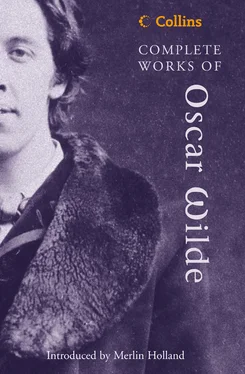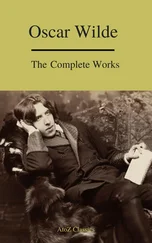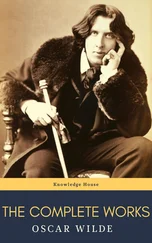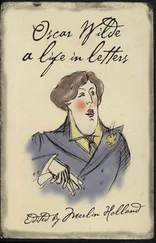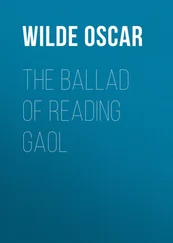The Duke and Duchess, after the honeymoon was over, went down to Canterville Chase, and on the day after their arrival they walked over in the afternoon to the lonely churchyard by the pine-woods. There had been a great deal of difficulty at first about the inscription on Sir Simon’s tombstone, but finally it had been decided to engrave on it simply the initials of the old gentleman’s name, and the verse from the library window. The Duchess had brought with her some lovely roses, which she strewed upon the grave, and after they had stood by it for some time they strolled into the ruined chancel of the old abbey. There the Duchess sat down on a fallen pillar, while her husband lay at her feet smoking a cigarette and looking up at her beautiful eyes. Suddenly he threw his cigarette away, took hold of her hand, and said to her, ‘Virginia, a wife should have no secrets from her husband.’
‘Dear Cecil! I have no secrets from you.’
‘Yes, you have,’ he answered, smiling, ‘you have never told me what happened to you when you were locked up with the ghost.’
‘I have never told any one, Cecil,’ said Virginia gravely.
‘I know that, but you might tell me.’
‘Please don’t ask me, Cecil, I cannot tell you. Poor Sir Simon! I owe him a great deal. Yes, don’t laugh, Cecil, I really do. He made me see what Life is, and what Death signifies, and why Love is stronger than both.’
The Duke rose and kissed his wife lovingly.
‘You can have your secret as long as I have your heart,’ he murmured.
‘You have always had that, Cecil.’
‘And you will tell our children some day, won’t you?’
Virginia blushed.
THE SPHINX WITHOUT A SECRET
An Etching
ONE afternoon I was sitting outside the Cafe de la Paix, watching the splendour and shabbiness of Parisian life, and wondering over my vermouth at the strange panorama of pride and poverty that was passing before me, when I heard some one call my name. I turned round and saw Lord Murchison. We had not met since we had been at college together, nearly ten years before, so I was delighted to come across him again, and we shook hands warmly. At Oxford we had been great friends. I had liked him immensely, he was so handsome, so high-spirited, and so honourable. We used to say of him that he would be the best of fellows, if he did not always speak the truth, but I think we really admired him all the more for his frankness. I found him a good deal changed. He looked anxious and puzzled, and seemed to be in doubt about something. I felt it could not be modern scepticism, for Murchison was the stoutest of Tories, and believed in the Pentateuch as firmly as he believed in the House of Peers; so I concluded that it was a woman, and asked him if he was married yet.
‘I don’t understand women well enough,’ he answered.
‘My dear Gerald,’ I said, ‘women are meant to be loved, not to be understood.’
‘I cannot love where I cannot trust,’ he replied.
‘I believe you have a mystery in your life, Gerald,’ I exclaimed; ‘tell me about it.’
‘Let us go for a drive,’ he answered, ‘it is too crowded here. No, not a yellow carriage, any other colour – there, that dark green one will do’; and in a few moments we were trotting down the boulevard in the direction of the Madeleine.
‘Where shall we go to?’ I said.
‘Oh, anywhere you like!’ he answered – ‘to the restaurant in the Bois; we will dine there, and you shall tell me all about yourself.’
‘I want to hear about you first,’ I said. ‘Tell me your mystery.’
He took from his pocket a little silver-clasped morocco case, and handed it to me. I opened it. Inside there was the photograph of a woman. She was tall and slight, and strangely picturesque with her large vague eyes and loosened hair. She looked like a clairvoyante , and was wrapped in rich furs.
‘What do you think of that face?’ he said; ‘is it truthful?’
I examined it carefully. It seemed to me the face of some one who had a secret, but whether that secret was good or evil I could not say. Its beauty was a beauty moulded out of many mysteries – the beauty, in fact, which is psychological, not plastic – and the faint smile that just played across the lips was far too subtle to be really sweet.
‘Well,’ he cried impatiently, ‘what do you say?’
‘She is the Gioconda in sables,’ I answered. ‘Let me know all about her.’
‘Not now,’ he said, ‘after dinner,’ and began to talk of other things.
When the waiter brought us our coffee and cigarettes I reminded Gerald of his promise. He rose from his seat, walked two or three times up and down the room, and, sinking into an arm-chair, told me the following story:-
‘One evening,’ he said, ‘I was walking down Bond Street about five o’clock. There was a terrific crush of carriages, and the traffic was almost stopped. Close to the pavement was standing a little yellow brougham, which, for some reason or other, attracted my attention. As I passed by there looked out from it the face I showed you this afternoon. It fascinated me immediately. All that night I kept thinking of it, and all the next day. I wandered up and down that wretched Row, peering into every carriage, and waiting for the yellow brougham; but I could not find ma belle inconnue , and at last I began to think she was merely a dream. About a week afterwards I was dining with Madame de Rastail. Dinner was for eight o’clock; but at half-past eight we were still waiting in the drawing-room. Finally the servant threw open the door, and announced Lady Alroy. It was the woman I had been looking for. She came in very slowly, looking like a moonbeam in grey lace, and, to my intense delight, I was asked to take her in to dinner. After we had sat down, I remarked quite innocently, “I think I caught sight of you in Bond Street some time ago, Lady Alroy.” She grew very pale, and said to me in a low voice, “Pray do not talk so loud; you may be overheard.” I felt miserable at having made such a bad beginning, and plunged recklessly into the subject of the French plays. She spoke very little, always in the same low musical voice, and seemed as if she was afraid of some one listening. I fell passionately, stupidly in love, and the indefinable atmosphere of mystery that surrounded her excited my most ardent curiosity. When she was going away, which she did very soon after dinner, I asked her if I might call and see her. She hesitated for a moment, glanced round to see if any one was near us, and then said, “Yes; to-morrow at a quarter to five.” I begged Madame de Rastail to tell me about her; but all that I could learn was that she was a widow with a beautiful house in Park Lane, and as some scientific bore began a dissertation on widows, as exemplifying the survival of the matrimonially fittest, I left and went home.
‘The next day I arrived at Park Lane punctual to the moment, but was told by the butler that Lady Alroy had just gone out. I went down to the club quite unhappy and very much puzzled, and after long consideration wrote her a letter, asking if I might be allowed to try my chance some other afternoon. I had no answer for several days, but at last I got a little note saying she would be at home on Sunday at four and with this extraordinary postscript: “Please do not write to me here again; I will explain when I see you.” On Sunday she received me, and was perfectly charming; but when I was going away she begged of me, if I ever had occasion to write to her again, to address my letter to “Mrs. Knox, care of Whittaker’s Library, Green Street.” “There are reasons,” she said, “why I cannot receive letters in my own house.”
‘All through the season I saw a great deal of her, and the atmosphere of mystery never left her. Sometimes I thought she was in the power of some man, but she looked so unapproachable that I could not believe it. It was really very difficult for me to come to any conclusion, for she was like one of those strange crystals that one sees in museums, which are at one moment clear, and at another clouded. At last I determined to ask her to be my wife: I was sick and tired of the incessant secrecy that she imposed on all my visits, and on the few letters I sent her. I wrote to her at the library to ask her if she could see me the following Monday at six. She answered yes, and I was in the seventh heaven of delight. I was infatuated with her: in spite of the mystery, I thought then – in consequence of it, I see now. No; it was the woman herself I loved. The mystery troubled me, maddened me. Why did chance put me in its track?’
Читать дальше
